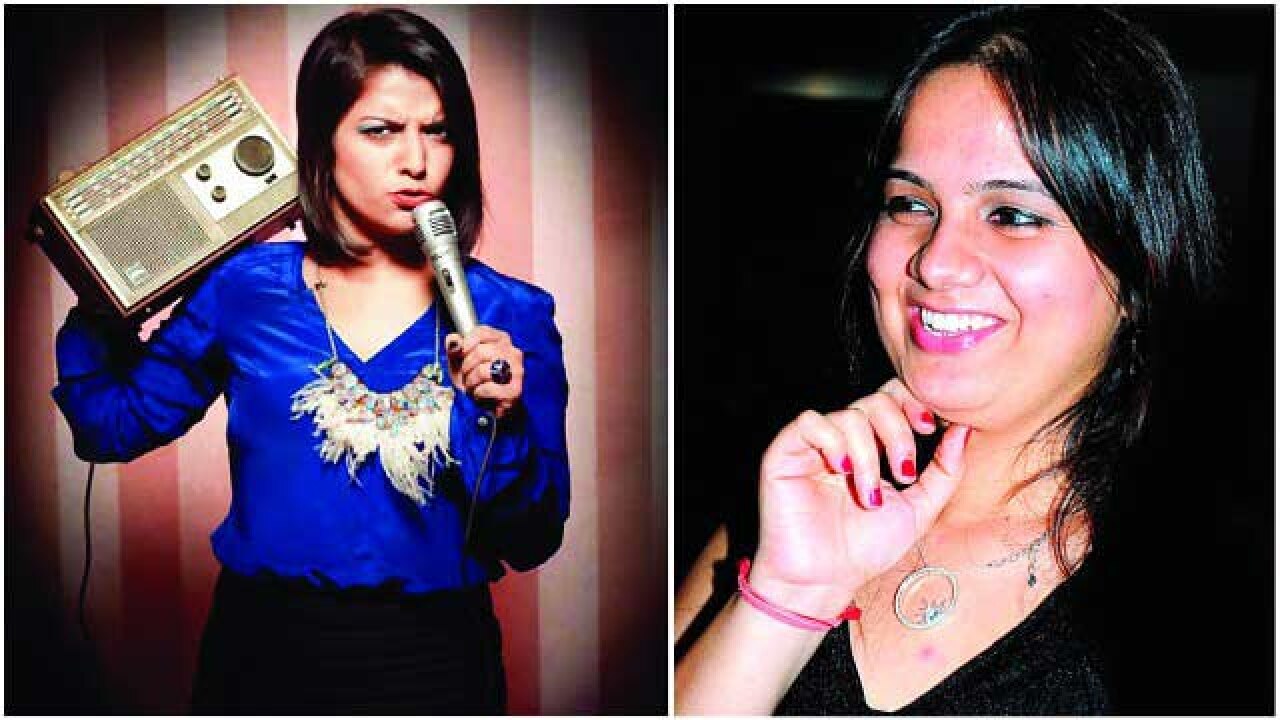
Switching between her Mrs Lutchuke alter-ego and herself, an excited Aditi Mittal talks about her new webseries on YouTube, Bad Girls, in which women from all walks of life offer a stand-up tribute to every girl and woman who has gone against the grain. Excerpts from the interview:
Good girls don't make history, bad girls are always remembered. As someone who has been a bad girl all her life, I'm meeting many other bad women. Women who are doing amazing things that the world should know.
I've got six. The third episode may feature Rajani Pandit (regarded as Maharashtra's first private detective). She has some insane stories. She puts herself in situations that aren't easy and is currently training other women for the high risk job. I have fellow comedian, Anu Menon, one of the first Indian women in mainstream comedy, on the youth-wala 'Yo' channel. Where everyone was constantly in their nanga kapda, she wore a kanjivaram sari, pulled off that silly accent and the kind of desexualisation most women were terrified of. We're also in the process of working on our science episode, for which we are speaking to women across the board — from a college student to a teacher and researcher.
I didn't take Nidhi on board because of her disability but because she's funny! When I saw Nidhi's performance during the first Sex and Sexability act (a collective stand-up effort to bust myths and taboos around disability and sexuality), I knew I wanted to do something with her. Comedy at the end of the day is comedy if people are laughing. Its function is to use the individual voice to tell a story that can belong to anyone — a man, woman, person with disability or without.
I want to snatch away that fear of being called bad, being told you're getting out of line and make women go: 'I'm a bad girl, what will you do?' I want to remove the whole mentality of aurat toh aurat ko pasand nahi karti, aurat toh aurat ko neeche dikhati hai... Then, there's often this question about how do we get more women to do x, y, z...well, by putting more women out there who are doing it. So I plan to bring forward women who are doing cool, unconventional things, in cool, unconventional ways and through them show people options and attitudes available to them.
The fear of not being accepted. For very long, every time I opened my mouth, it was wrong. At a regular Canvas (laughter club) gig, someone once asked me, "Aren't you afraid people will react badly?" Failure isn't something women are encouraged to embrace. We are told to run away from it and lower our risks for everything — from where you're going to your profession, you're told to choose safety first.
In comedy, the kind of reactions we get are: "You're toh shouting", "You're toh attention-seeking" and other such stereotypes. Jokingly, I'd be told, "Yaar you're not popular with the guys". Comedy is a s**t investment in love-life for a woman. Nobody finds a f***ing funny woman sexy. It is devastating. It's the same old, 'Women are scared dudes will kill them, dudes are scared women will laugh at them'.
The punishment is built into the process. In a room full of men, the way they talk to you, dismiss you, talk over you, and you're just supposed to deal with certain things, not talk about them or address them because 'you're toh strong aurat, you can't be vulnerable'. So I want bad girls to have a space to open up, share stories, flaunt that punishment. There's a system. The more we talk about it, the more we can build a vocabulary to counter it.
Ex MTV VJ, Anu Menon qualifies as a 'bad girl' for having disrupted the mainstream comedy scene a decade ago with her Lola Kutty avatar. Over to Menon:
It was quite a turnaround to be interviewed for a change; to talk about the journey of Lola. We're trying to make so much, and yet so little, about women in the work sphere – like how everything gets sexualised, the number of times I've been told, 'Aeh you're quite funny haan, for a woman' or a director telling me, 'if you were my heroine, I'd never let you eat'.
Then there's the women-only shows at comedy festivals — I just don't get them — to be inclusive just have a line-up of three men and two women. There are lots of interesting rejection anecdotes.
After the Lola years, people asked me to be more proactive because women have very few role models in comedy. There's always this expectation that you should be or are doing something to further the cause of womanhood. But the reality of my day is that I have a four-year-old, no fancy nanny and my husband is on ship and so we do what we can and are happy doing. I hope my episode fetches me a commercial with my lovely curls (giggles).